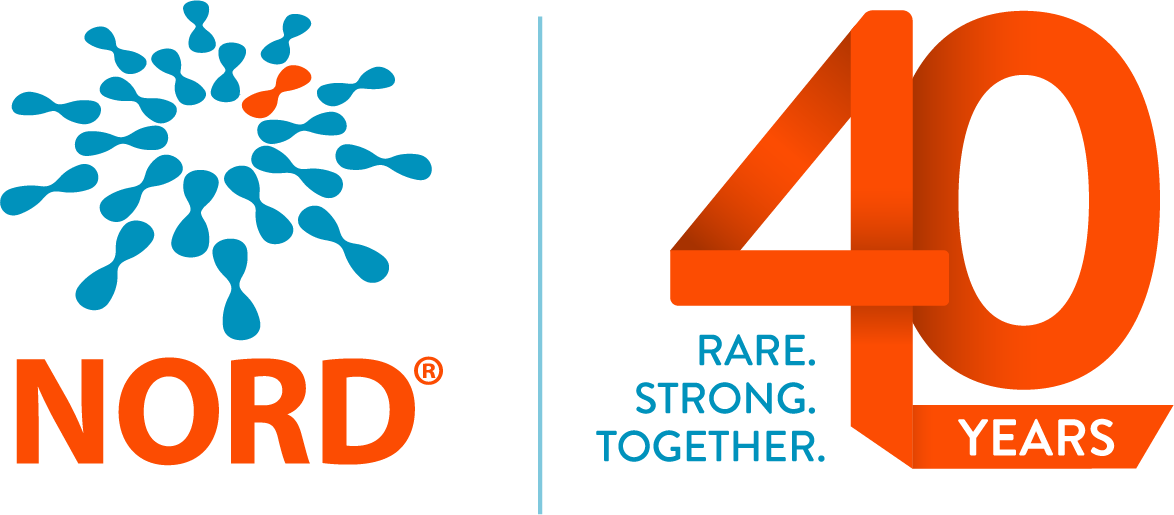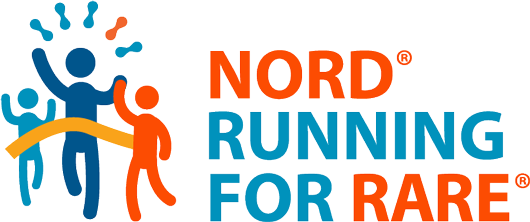-
RareAction Network > About > News > Featured Advocate Stories > Being Named State Ambassador
Being Named State Ambassador
To help drive the efforts of the RareAction Network℠, NORD launched the State Ambassador Program. State Ambassadors are volunteers in a leadership position responsible for establishing and building a strong grassroots network of rare disease advocates within their state to help increase awareness of rare diseases and the challenges patients and their families face.
Lydia Seiders was recently appointed the role as the Maryland RareAction Network State Ambassador. The article below was originally published on heraldmailmedia.com, the online site for The Herald-Mail Newspaper, a local newspaper out of Hagerstown, MD to bring awareness to Lydia’s new volunteer role with the RareAction Network.
Lydia Seiders of Hagerstown already knows there are nearly 30 million Americans who have a rare disease — because she’s the mother of one of them.
Seiders’ oldest daughter, Emma Southard, 11, was diagnosed with aplastic anemia in 2016. Of those 30 million with rare diseases, 15 million are children, according to National Organization for Rare Disorders, an independent nonprofit that is committed to the identification, treatment, and cure of rare diseases.
Since then, Seiders, along with her daughter, have become advocates for those who have rare disorders. And Emma has used her advocacy to rename herself #EmmaStrong in the rare disorder community.
Because of Emma’s disease, Seiders has been fighting to help get the care that her daughter needs. But now as Maryland Volunteer State Ambassador for the National Organization for Rare Disorders through its advocacy arm RareAction Network, Seiders is hoping to help the others in the state living with rare disorders and their families.
“I’m heavily involved with advocacy work with Emma’s condition,” Seiders said. “It’s a rare condition and it was through a Facebook post about what we can do about the new policy presented that would heavily affect my child’s health care. I wanted to get involved at a higher level.”
On that same Facebook post, Seiders saw something about Days of Action that encouraged people to email, tweet and call their state senators and congressmen. It was on that page Seiders saw a blurb about state ambassadors.
“I clicked on it and I thought ‘I’m already doing a lot of this. If there’s something else to do, I wanted to do it,’” she said.
Feeling she could help, Seiders thought she should apply. At the bottom of the application, it said don’t expect a phone call because there were so many applications.
“Within an hour, I received a phone call,” Seiders said, noting she was dumbfounded by how quick they responded.
They asked her in for an interview. She excitedly agreed. During the first level of interviewing, Seiders said they asked her why she wanted to be an ambassador.
“They explained those responsibilities again and I explained that I’m already doing that — just more specifically geared to my own daughter’s condition, but if I can do something for the entire rare disease community because of the legislation that’s out, I want to get involved, tell me how, ” she said.
The second interview process had Seiders sit down with the person in charge of policy for NORD. To prepare herself, Seiders said she got a copy of the policy and read it. That’s when, she said, she realized how important the work they were doing because what they did impacted her family and others like them.
She said her research led her to realize how much is done at the state level and how state laws can effect Medicaid, Children’s Health Insurance Program (CHIP) eligibility and medical foods coverage, and how as a state ambassador she would be able to educate others.
Seiders said during the interview, she was overwhelmed at how much NORD and RAN staff really care about the families they serve.
“They literally want to hear the voices of the rare disease community,” she said. “I ended up tearing up and I told him that regardless of how this went, I still wanted to get involved. My daughter and I already have big voices and we’d like to use them for everyone in the rare disease community.”
After the interview, Seiders said she sent an email to thank them for the interview. She said nearly immediately she received a reply telling her that she got the job but they were waiting to officially tell her. On June 20, Seiders was named as the Maryland Volunteer State Ambassador.
The unpaid position is for two years. Seiders duties are to:
- Help recruit new advocates to join the network in Maryland
- Develop state-based campaigns for increasing awareness on the issues of importance to the patients and caregivers in their state
- Be the liaison between NORD’s RAN team and the members within Maryland’s network
- Contribute to regional and national campaigns for RAN to take action on
- Represent Maryland at Regional RAN Meetings
- Plan and execute Advocacy events within Maryland, regional and local communities
- Develop relationships with key decision-makers on state and national policy issues
- Help mobilize Maryland in advocacy throughout the year, especially for Rare Disease Day, which is Wednesday, Feb. 28, 2018.
“I was already doing a lot of this with Emma’s condition, so with this position, I was able to help the entire rare disease community,” Seiders said.
When Seiders started her training, she admitted she was a little intimated at having to interact with senators and congressmen.
“But it lit a fire that was there already, it just dumped on gasoline. I thought, ‘Alright, let’s just do it,’ as Emma would say,” she said.
And as someone who has walked through the fire, Seiders said that’s why she wants to help others.
“There are so many out there who need to connect,” she said. “If you’re not in the rare disease community you don’t understand what it’s like.”
Her next focus is on putting together a legislative reception sometime early next year at the state house in Annapolis. For the reception she’ll have to form a committee with an attorney to speak on how a rare disease affects a family; a doctor or specialist, on how it affects them medically; and a parent on how it affects the family, to talk to legislators.
She will also have to gather people to help in recognizing Rare Disease Day in 2018.
In general, Seiders said she’d like to tour the state and meet with other rare disease families, as well as give talks in schools and in front of doctors and others.
“Anyone who will listen to me, I’ll come give a presentation,” she said.
Seiders is also obtaining a degree from Arizona State University focusing on policy and communication. She said she’s hoping what she learns through her volunteer position will help her in her career one day.
“My goal is to ultimately do something like this with a big non-profit and make a change and make an impact,” she said.
In the meantime, Seiders will continue to fight for those in the rare disease community.
“I’m not only advocating for all the rare disease families, I am advocating for my own family,” she said.
Lydia Seiders, Maryland Volunteer State Ambassador for National Organization for Rare Disorders and its advocacy arm, RareAction Network, can be contacted by calling 540-404-4599, emailing her at [email protected], or by visiting her Facebook page at www.facebook.com/RANMarylandStateAmbassadorLydiaSeiders. For more information about RareAction Network, go to RareAction.org.
Quick Search
Subscribe
Blog Categories
Archives


